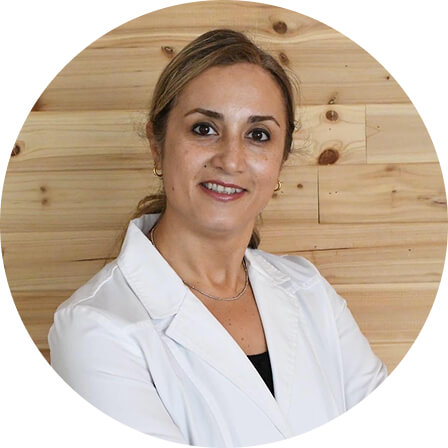If you live with diabetes, most day‑to‑day care can be managed by a primary care provider (PCP). But there are times when bringing a diabetes specialist—an endocrinologist—onto your team can improve control, reduce complications, and make treatment less stressful. This guide explains what endocrinologists do, the clearest signs it’s time to see one, what to expect at your first visit, and how to prepare.
What exactly does an endocrinologist do?
An endocrinologist is a physician who completes additional fellowship training in hormone‑related conditions, including diabetes. They diagnose and treat disorders of the endocrine system (pancreas, thyroid, adrenal, pituitary, ovaries/testes) and often coordinate technology‑assisted diabetes care (CGM, insulin pumps, automated insulin delivery).
PCP vs. diabetes specialist: who manages what?
- PCP: Screening, diagnosis, routine follow‑up when diabetes is stable, prescriptions, and referrals to other team members (dietitian, diabetes educator, eye/foot care).
- Endocrinologist: Complex or changing diabetes, advanced therapies and devices, pregnancy‑related diabetes care, and evaluation of contributing hormone issues (e.g., thyroid, adrenal).
12 signs it’s time to see an endocrinologist
- Your A1C stays above goal despite treatment. For many adults, the recommended ADA is A1C <7% (individualized to avoid hypoglycemia). If your A1C remains above the target—or is rising—you should go for a referral.
- You’re having frequent or severe lows. Recurrent hypoglycemia—especially Level 2 (<54 mg/dL) or Level 3 (needs help from another person)—shows strong signs to escalate care.
- You’ve had diabetic ketoacidosis (DKA) or hyperosmolar hyperglycemic state (HHS), or ER visits many times. These crises need specialist involvement to adjust insulin.
- You’re newly diagnosed with type 1 diabetes—or your type is uncertain (e.g., LADA). Endocrinologists recommend insulin and antibody testing.
- You’re pregnant or planning for a pregnancy. Diabetes before or during pregnancy calls for higher risk, medication adjustments (often insulin), and CGM/pump support—all core endocrine services.
- You want to start, optimize, or troubleshoot diabetes technology. The 2025 ADA Standards show CGM use, including consideration for some adults with type 2 diabetes not on insulin, to improve time‑in‑range and reduce hypoglycemia. Pumps and automated insulin delivery may also be suggested.
- You have kidney disease, heart disease, or are at a high cardiovascular risk. Endocrinologists help integrate SGLT2 inhibitors and GLP‑1 receptor agonists for cardio‑renal protection alongside glucose control.
- You’re experiencing diabetes complications (retinopathy, neuropathy, and difficult‑to‑heal foot issues). A specialist can coordinate targeted screening and also suggest treatment accordingly.
- You’re on complex regimens (multiple daily injections, steroids, or interacting meds) and need frequent fine‑tuning to balance goals and safety.
- You’re an older adult with a changing health (falls, cognitive changes, new comorbidities). Endocrinologists tailor safer, sometimes less stringent targets to avoid health risks.
- You want structured weight‑loss or metabolic therapy (e.g., GLP‑1/GIP agents) integrated with your diabetes plan. Many endocrine clinics manage obesity and diabetes together.
- Your PCP recommends it, or you want a second opinion. It is encouraged to visit a specialist or at least have a one-time visit.
Have you noticed any symptoms? When should you seek Emergency care?
Call emergency services or go to the ER if you have signs of DKA (rapid breathing, vomiting, abdominal pain, fruity breath, confusion) or HHS (extreme thirst, frequent urination, dry mouth, confusion/neurologic symptoms). These are signs of medical emergencies.
How an endocrinologist can change your day‑to‑day lifestyle
- Refine targets (A1C, time‑in‑range) and minimize hypoglycemia.
- Upgrade your toolkit: choose the right CGM/pump/AID and interpret the data together.
- Optimize medications for both glucose and organ protection (GLP‑1 RAs, SGLT2 inhibitors when indicated).
- Coordinate screening (eyes, kidneys, nerves, feet) at guideline‑based intervals.
How to prepare for your first endocrine visit (checklist)
Bring:
- Recent lab report (A1C, kidney function, lipids) and any imaging.
- Your meter/CGM or pump (or downloads/screenshots).
- Medication list (name, dose, how often, including OTC/supplements).
- Insurance/referral documents: You need to bring your documents if you are looking to get insurance.
FAQs
Do I need a referral to see an endocrinologist?
It depends on your insurance and the clinic. Many HMO/Managed Medicaid plans require a PCP referral; Original Medicare generally does not, while some Medicare Advantage HMOs do. PPO/EPO plans often allow self‑referral to in‑network specialists. Always confirm your plan’s rules first.
How often should I follow up?
Your schedule is prepped individually, but as a rule of thumb: A1C every 6 months if at goal; every ~3 months if your therapy changed or you’re not yet at target. Device data reviews may be more frequent early on.
Can I use telemedicine?
Yes—many endocrine practices, including Hilltop Endocrinology, offer in‑person and telemedicine options, which work well for CGM/pump data reviews and medication adjustments.
Bottom line
You don’t have to wait until things feel out of control. If your numbers aren’t where you want them, you’re having lows/highs, or life circumstances are changing (pregnancy, new complications, new meds), an endocrinologist can recalibrate your plan with modern techniques and evidence‑based therapies.




